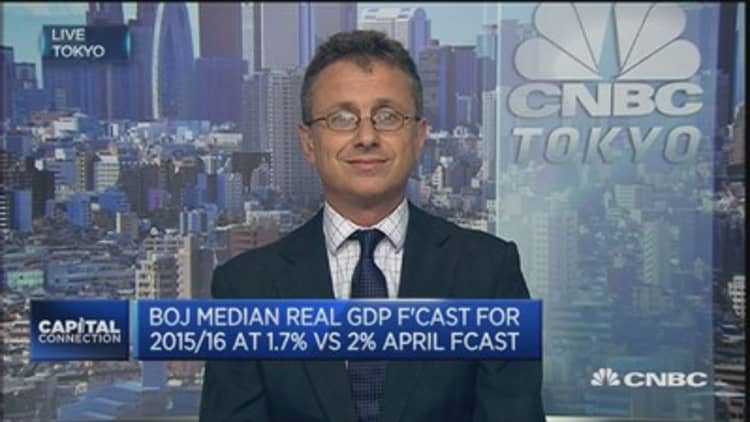Several Bank of Japan board members said the impact of the bank's massive stimulus might be fading, according to minutes of its June meeting, a sign that not all shared Governor Haruhiko Kuroda's optimism on achieving his 2 percent inflation target.
The nine-member board agreed underlying inflation, which excludes volatile food and energy prices, would continue to improve in the long term, the minutes published on Tuesday showed.
Some members said the reach of the BOJ's stimulus, dubbed quantitative and qualitative easing (QQE), remained substantial given that interest rates in Japan had been stable at a low level despite higher overseas yields, according to the minutes.

But pessimists on the board, such as former market economist Takahide Kiuchi, were less convinced that the stimulus remained powerful enough to keep bond yields at ultra-low levels even as QQE reflated the economy.
"A few members said the effects of QQE might be diminishing, considering long-term interest rates had temporarily risen to a range of 0.5 to 0.6 percent," according to the minutes.
The BOJ has kept monetary policy steady since expanding stimulus in October last year to prevent slumping oil costs, and a subsequent slowdown in inflation, from delaying a permanent exit from deflation.
Read MoreBOJ keeps policy steady, trims GDP forecast
At the June policy meeting, the BOJ also decided to reduce the number of policy-setting meetings it holds each year to eight from 14, starting next year, in line with a trend among global central banks.
Government representatives present at the June meeting endorsed the decision, though they called on the central bank to hold, as in the past, emergency meetings if sudden shifts in economic and financial conditions warrant timely policy changes.
"It's important to avoid giving rise to a possible misunderstanding in the market...that the timeliness of the BOJ's conduct of monetary policy would diminish with the lower frequency of policy-setting meetings," one of the two government representatives was quoted as saying in the minutes.
"The government expects the BOJ...to call unscheduled policy-setting meetings if necessary and maintain a thorough dialogue with the government," he said.


